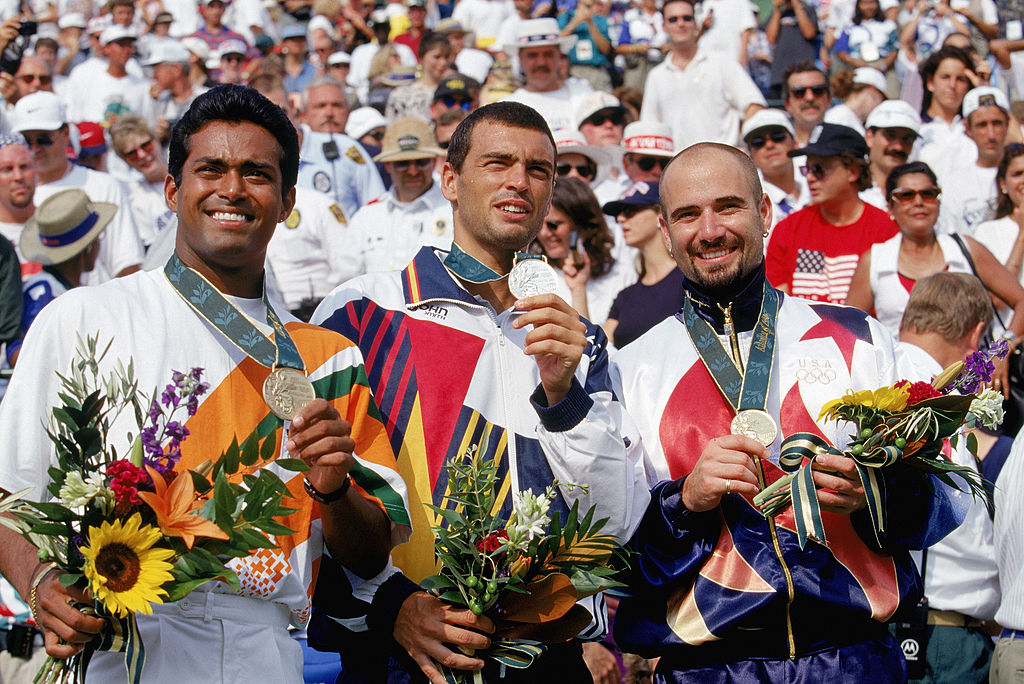- Monday, April 28, 2025

By: Shubham Ghosh
HE has been one of India’s marathon horses. For a country of a billion which is ever-obsessed with cricket, it is not easy to make a name playing a sport which is considered to be one played by the rich. But Leander Adrian Paes stuck to his work and his dream and the results showed all these years.
Born in Calcutta (now Kolkata) to sporting parents Vece Paes and Jennifer Paes (both played for India at the Olympics in hockey and basketball, respectively), Leander started making headlines in tennis when he was a teen by winning the Junior US Open and Junior Wimbledon in the early 1990s. He turned professional in 1991. But while Paes had his limitations in the singles format and is considered among the greatest doubles players in the history of tennis, his highest point in career came in the singles when he won the bronze medal in Atlanta Olympics in 1996, 44 years after KD Jadhav had last won the country a medal at the highest podium.
For Leander, whose supreme nationalistic zeal was always on display whenever he took part in the Davis Cup and proved to be a giant killer on many occasions, winning a medal at the Olympics was not a straight thinking.
At 23, the ace player was more concerned about clearing the first hurdle. Paes was unseeded in the tournament but did not leave any stone unturned for the mega show. He even played tennis at high altitudes the year before to get himself adjusted to such conditions at Atlanta.
“When I got to Atlanta, I drew Pete Sampras. He was probably the top seed at the time,” Paes had said while recalling his experience in Atlanta on a show called ‘The Medal of Glory’ on the Facebook page of Sony Sports.
“My teammates were like, ‘That’s a tough draw, Paes. Better luck at the next Olympics.’ No one really believed that I could beat Sampras,” he said.
But Lady Luck favoured the Indian as Sampras, who was the world No.1 then and was a favourite to win the gold, pulled out of the tournament owing to an injury on the eve of the match with Paes.
Sampras was replaced by another American Richey Reneberg, who was among the top 20 single players then. But luck went on favouring Paes as Reneberg retired from the game in the third set out of exhaustion with both the players winning a set and Paes leading the deciding set 1-0.
Paes then beat Venezuela’s Nicolas Pereira in straight sets 6-2, 6-3 in the second round, Sweden’s Thomas Enqvist 7-5, 7-6 in the third and Italy’s Renzo Furlan 6-1, 7-5 in the quarterfinals.
Paes was into the last four and met Andre Agassi, who was the favourite after Sampras’s exit, in the semi-finals and eventually won the championship. The Indian still vividly remembers his encounter with the American which he won despite Paes having his moments in the game. From leading the first set 6-5, Paes lost it 6-7 and then lost the second 3-6 to bow out of the hunt for a gold.
He also sustained an injury in his wrist and took on Brazil’s Fernando Meligeni in the bronze decider after the latter lost to Spain’s Sergi Bruguera, who was another surprise package in that event.
Making full use of the rest day ahead of his bronze-medal game, Paes had an unimpressive beginning against Meligeni as he lost the first set 3-6 but then bounced back strongly to win the next two 6-2, 6-4 to bag the bronze.
Paes represented India in in seven consecutive Olympics between 1992 and 2016 but the bronze in Atlanta remained his highest point in the quadrennial event. He became only the third overall and second from independent India to win the country an Olympic medal.